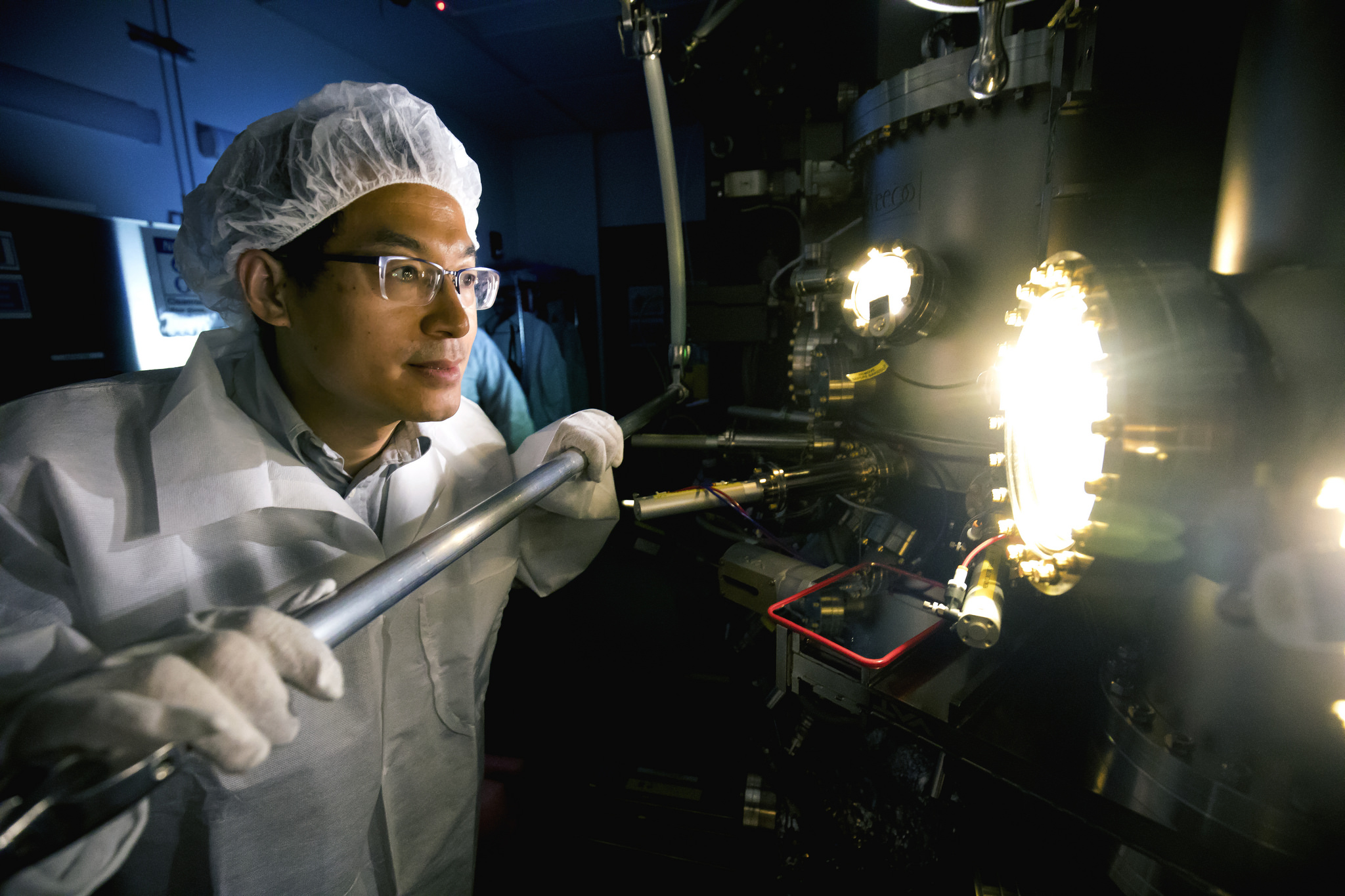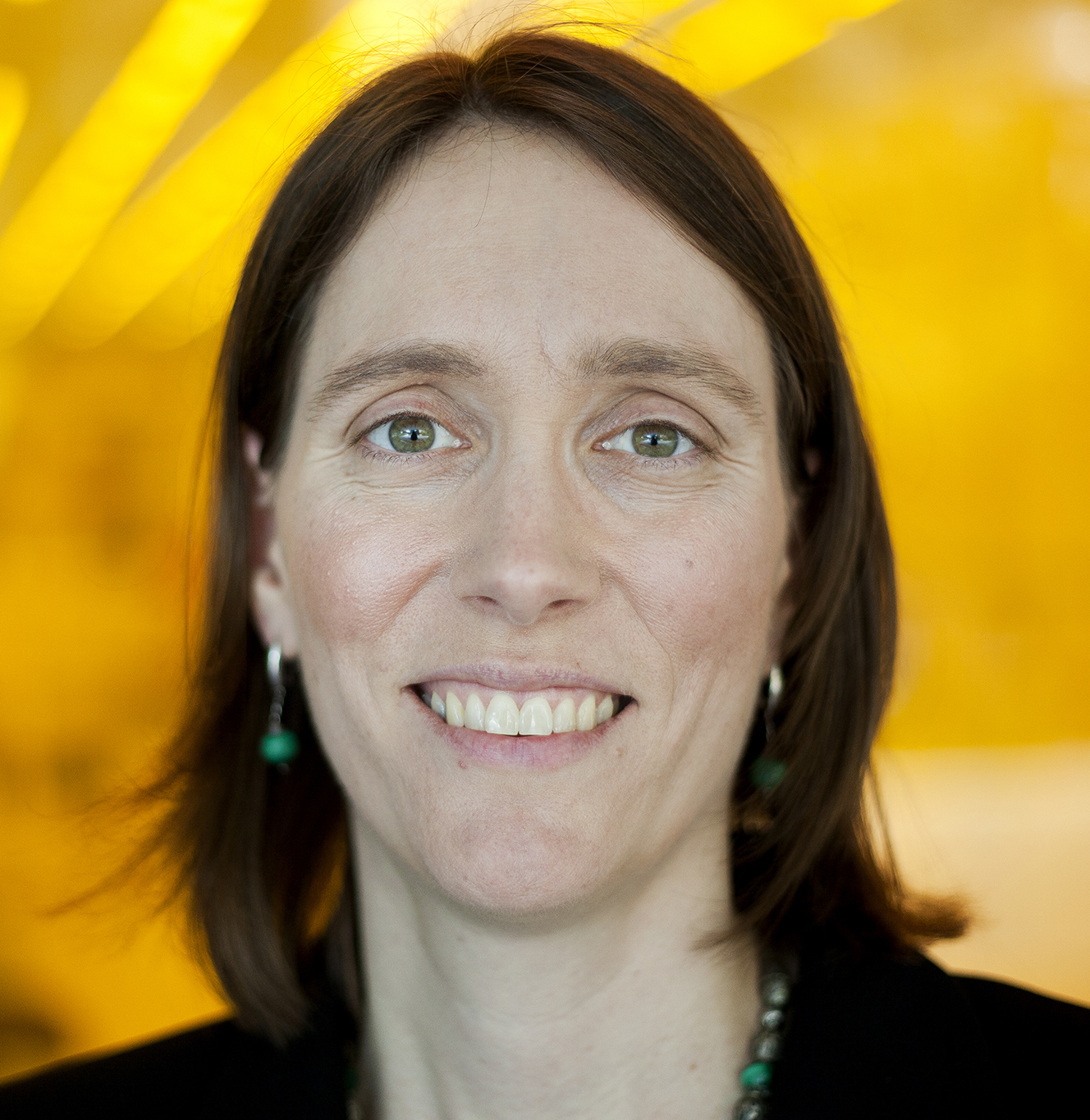Blue Sky and Research Accelerator Initiatives fund solar fuel and high-power research

 Enlarge
Enlarge
In a unique approach to investing in faculty research, the College of Engineering will invest in six research projects, two of which are led by Electrical and Computer Engineering (ECE) faculty. In one project, Professor Zetian Mi will lead a Blue Sky Initiative working on artificial photosynthesis with up to $2.5m in funding. In another project, Professor Becky Peterson will lead a Research Accelerator project developing innovative manufacturing methods for high-tech films used in high-power devices with $250,000 in funding.
The Blue Sky and Research Accelerator initatives are a part of the Michigan Engineering 2020 Strategic Vision, which aims to “use a startup investment model to spur innovative and collaborative research to solve grand challenges.”
Mi’s project, Scalable Quantum Engineering and Manufacturing (SQEM), is one of four Blue Sky Initiatives selected to receive funding. The interdisciplinary team includes 11 collaborating faculty from ECE (Elaheh Ahmadi, Pallab Bhattacharya, Mackillo Kira, Pei-Cheng Ku, and Ted Norris), Materials Science and Engineering (Emmanouil Kioupakis, Robert Hovden), Mechanical Engineering (Kevin Pipe). Chemistry/Biophysics (Kevin Kubarych), and Physics (Steven Cundiff, Jennifer Ogilvie).
The team seeks to develop new ways to control and use quantum particles such as excitons, polaritons, and dropletons.
This work could help address access to clean water with more efficient ultraviolet LEDs, and create a new source of renewable fuels through more efficient production of solar fuels using artificial photosynthesis.
According to the announcement:
The leading deep UV LEDs only have a few percent efficiency, or lower. Researchers believe they can increase this by a factor of 10 to 100. These improvements would meet a growing demand for UV LEDs, which are experiencing more than 30 percent annual market growth as 2.5 billion people around the globe don’t have access to clean drinking water.
Primary energy consumption, one of the biggest challenges of the 21st century, is another area of focus. Through quantum engineering, SQEM has transformed gallium nitride into one of the most efficient photocatalysts for solar hydrogen generation. Mi envisions harnessing the unique quantum properties of gallium nitride to demonstrate artificial photosynthesis that can convert atmospheric carbon dioxide and water into fuel with an efficiency that bests plants by 10 to 100-fold.

 Enlarge
Enlarge
Peterson’s project was selected for funding as one of two projects in the Research Accelerator program. Her team aims to develop an innovative, environmentally-friendly manufacturing method for semiconductor films used in high-power devices.
The most common semiconductor in use today, silicon, cannot meet the voltage requirements of high-power applications, such as electrical vehicles, industrial automation, and distributed grid systems. To address this shortfall, Peterson and her collaborators will utilize a new material: gallium oxide.
“Power electronics is at the heart of the coming revolution to realize sustainable ways of generating and efficiently managing electrical power. In this project, we will develop new deposition techniques at U-M that offer environmentally-friendly and high-growth rate pathways to achieve high quality layers of beta-phase gallium oxide. In addition, we will study the growth of gallium oxide alloys and layered heterostructures needed for high-frequency transistor operation.” Peterson said. Electronic devices made using these crystalline gallium oxide films could efficiently and reliably support the higher voltages required for applications where silicon falls short.
Included on Peterson’s team are faculty from ECE (Elaheh Ahmadi, Jamie Phillips), Materials Science and Engineering (Emmanouil Kioupakis, Steven Yalisove), and Applied Physics (Cagliyan Kurdak).
 MENU
MENU 
